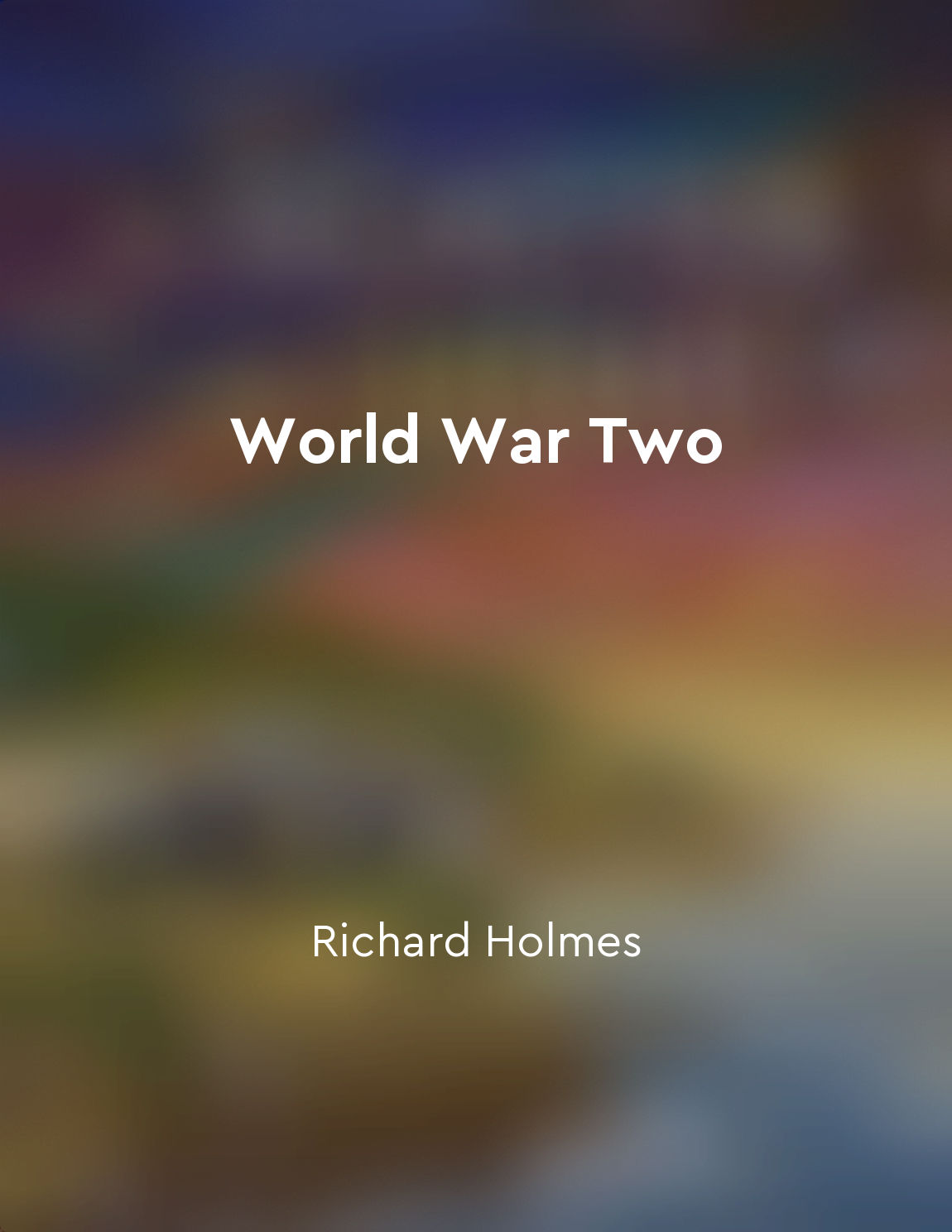Military strategies prioritize offense over defense from "summary" of The Origins of the First World War by Annika Mombauer
According to Mombauer, military strategies in the lead-up to the First World War often emphasized the importance of taking offensive action rather than focusing solely on defense. This approach was influenced by a number of factors, including the prevailing belief in the superiority of offensive tactics and the desire for quick, decisive victories. The prevailing view among military leaders was that a strong offense could achieve strategic objectives more effectively than a purely defensive posture. The emphasis on offense was also driven by the technological developments of the time, particularly the increasing range and accuracy of artillery. This meant that defensive positions were more vulnerable to attack, leading military planners to prioritize offensive operations as a means of neutralizing enemy defenses. The expectation was that a well-executed offensive could quickly overcome enemy positions and force a rapid conclusion to the conflict. Furthermore, the offensive mindset was reinforced by the prevailing military doctrine of the time, which emphasized the importance of seizing the initiative and maintaining momentum in battle. This meant that military leaders were often inclined to favor offensive strategies that allowed them to dictate the course of the conflict, rather than simply reacting to enemy moves. By taking the fight to the enemy, commanders believed they could keep their opponents off balance and prevent them from consolidating their defenses. In practice, however, the emphasis on offense over defense could have unintended consequences. By focusing on offensive operations, military planners often neglected to adequately prepare for the possibility of sustained defensive action or counterattacks by the enemy. This lack of emphasis on defensive capabilities could leave armies vulnerable to unexpected reversals or prolonged engagements that strained their resources and manpower.- Mombauer suggests that the prioritization of offense over defense in military strategies before the First World War reflected a combination of factors, including prevailing beliefs in the effectiveness of offensive tactics, technological developments that favored offensive operations, and the influence of military doctrine that emphasized the importance of seizing the initiative. While offensive strategies could offer advantages in certain situations, they also carried risks that could leave armies exposed to unforeseen challenges on the battlefield.
Similar Posts

Intelligence operations intensified
As World War Two progressed, the importance of intelligence operations became increasingly evident to military leaders on all s...
Good strategy requires continuous reassessment and adjustment
Effective strategy is not a one-time event that can be devised and then set aside. It is an ongoing process that requires const...
Creativity is essential for success
In the realm of war, as in all aspects of life, the ability to think creatively is a crucial determinant of success. The great ...
Preparation is key to success on the battlefield
In order to achieve success on the battlefield, one must understand the importance of thorough preparation. This concept is emp...
Keep your emotions in check
Emotions are a dangerous thing in war. They can cloud your judgment, make you act irrationally, and cause you to lose sight of ...

Understand the terrain before engaging in battle
When you engage in actual fighting, if victory is long in coming, then men's weapons will grow dull and their ardor will be dam...

Avoid prolonged conflict whenever possible
It is imperative to understand that engaging in prolonged conflict is not conducive to achieving victory. Prolonged conflict ca...

Seek to end conflicts quickly and decisively
The key to success in war lies in swiftly resolving conflicts with determination and efficiency. It is crucial to avoid prolong...
Maintain a balance between innovation and tradition
In the midst of the chaos of battle, it is essential for a leader to navigate the delicate balance between embracing innovation...

